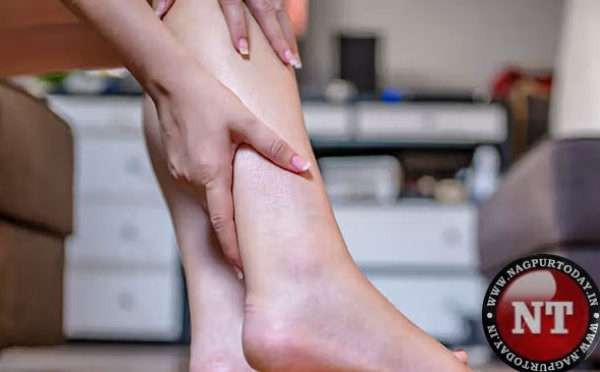
Heart disease is considered a silent killer for its presentation, which is not very clear-cut until the damage is done. Shocking enough, the most typical presentation of heart disease comes through swelling, medically known as edema.
People do not associate swelling with the heart; however, it is a common and serious indication that the heart is not performing its work. Swelling Caused by Heart Disease: this is the discussion on how heart disease causes swelling, symptoms, and treatments such as Diamox tablets that could relieve the situation.
How does Heart Disease Cause Swelling?
Edema caused by heart diseases primarily results from the failure of the heart to distribute blood throughout the body. The heart grows weak, and thus it becomes useless and unable to distribute blood throughout the body in the correct manner. Fluid starts accumulating within the body mostly in the lower limbs such as the feet, ankles, legs, but can also collect in the abdomen and lungs. Now let’s see what happens
- Congestive Heart Failure (CHF): The most common heart disease for which people suffer with swelling is CHF. In CHF, the pumping action of blood is somehow impaired by the heart and thus fluid collects in the tissues, mainly in the legs and feet. Fast flow of blood will also affect kidneys such that they are unable to process and expel more fluid in the body appropriately and it gets accumulated.
- Swelling can also result from faulty heart valves. In this instance, either damaged or weakened valves will not allow the heart to pump blood proportionally in the expected amounts. These structures maintain blood circulation within the heart, and once not functioning as it should, blood can pool inside the veins leading to fluid retention.
- Pulmonary Hypertension: It refers to excessive pressure in the arteries which belong to the lungs. Pulmonary Hypertension consequently increases paintings at the proper facet of the heart. It becomes tougher to pump blood through that heart. Fluid also begins leaking from the lungs, abdomen and limbs into the cavities in the body and causes swelling.
- Venous Insufficiency: The poor contraction of the heart in diseases of heart may damage the veins specially of the legs. Since the blood does not easily retrograde toward the heart, it overflows in the veins, thus producing edema in the lower limbs.
Heart Related Edema Symptoms
Heart disease swelling is usually gradual, and early warning signs may be overlooked. A growing consciousness of symptoms below ensures that you are treated before time progresses to worse times:
- There are various kinds of heart-related swelling. Dilation occurs more often in feet, ankles, and legs. In many cases, swelling shows itself while one is standing or sitting for very long periods. At times swelling presents itself together with pain or the feeling of heavy weight in the legs.
- Shallow Breathing: Fluid in the lungs may cause some shortness of breath that worsens during nights. Such symptom is very highly related to heart failure.
- Rapid Weight Gain : The patient quickly gains weight in a very short time may be due to fluid retention. Such weight gain is concerned with edema from heart failure, especially when patients gain 2 to 3 pounds in one day or 5 pounds in a week.
- Ascites: Fluid can also build up in the abdomen that may cause pain and bloating feeling with a feeling of fullness.
- Fatigue: Due to the excess fluid in your body, the heart has to pump blood very hard, which makes you feel really fatigued and exhausted even on simple physical activities.
Treatment of Heart Disease Swelling
Heart disease caused swelling has to be handled by managing the underlying condition of the heart. Most cases require medications and lifestyle changes in order to minimize how that water progresses and make it so your heart functions better. Among the popular treatments are the following.
1. Medications
Meditations used would form the most important control measure for edema of a heart-related kind. Within this category fall drugs reducing fluids and tackling swelling.
- Diuretics: Diuretics are often called water pills. They are drugs that promote the loss of excess water by the kidney. You would soon notice that swelling in your legs and elsewhere of the body due to fluid retention starts to reduce. Diuretics, however, aren’t for use without warning in view that if they may be not, they could motive dehydration and electrolyte imbalance.
- Diamox Tablets (Acetazolamide): Diamox pills that contained acetazolamide is every other medicinal remedy for fluid retention. It is a diuretic, and heart patients or those with diseases that cause fluid to accumulate inside them have been prescribed this medication. This one raises the urine output, thus removing the excess fluid from the body and thereby relieving swelling in limbs or other parts of the body.
- ACE Inhibitors and Beta-Blockers These drugs make the heart stronger as apart from dilating the blood vessels, which thereby decreases the pressure of the blood and on the heart, these also ensure fluid retention cannot take place with good blood circulation and decreased friction of the burden on the heart.
- Blood Thinner: Anticoagulants would be administered to some patients, which is a drug used in thinning the blood for clotting that may worsen the swelling by preventing normal flow of blood.
2. Lifestyle Changes
Aside from the drugs, lifestyle changes would do all the trick in managing heart disease and swelling:
- Low-sodium diet: For heart disease patients, a low sodium diet is an absolute part of their diet since sodium holds fluids within an individual’s body. Lesser sodium intake prevents the buildup of excessive fluids that might trigger swellings and also reduces blood pressure.
- Exercise: Any exercise, from the simplest activities that include walking, swimming, or biking, can help increase blood flow as a means to reduce swelling within the limbs. Exercise also strengthens your heart and builds up its ability to pump more forcefully.
- Raise Limbs: To minimize swelling in your lower limbs, elevate your feet and limbs above the level of your heart. It would then push excess fluid back towards the heart and prevent fluid from building up in your limbs below the waterline.
- Compression Stocking: Compression stockings enable the prevention of swelling through inducing regulation of blood flow and prevention of fluid from catching a hold in the legs.
3. Medical Treatments
When drug and lifestyle modifications are sometimes not enough to treat heart-related swelling issues, then medical interventions become necessary:
- Fluid Aspiration: Doctors aspirate excess fluid accumulated either in the abdomen or lungs if retention of fluid is extreme by paracentesis or thoracentesis.
- Valve Repair or Replacement: If fluid retention due to severe valve damage caused by a heart valve, the doctor might have to perform surgery to repair or replace the valve.
- Pacemakers and Defibrillators: As the function of the heart improves by regulating the heartbeats, this can go a long way to reduce fluid retention.
How to Prevent Fluid Retention Caused by Heart Disease
This would prevent swelling caused by heart disease through good management of the heart health both in terms of medical treatment and good healthy living practices. Several strategies to be used when considering are as follows:
- Schedule Regular Check-Ups Regular check-ups will ensure early heart disease detection. Fluid buildup and complications can then be prevented. You have to visit your doctor regularly and follow your treatment plan well.
- Keep your blood pressure and cholesterol in check. This will minimize risks of heart disease and the edema that often accompanies it.
- Quit smoking-smoking is bad for the blood vessels that flare up heart diseases; quitting smoking brings many improvements, including improved circulation, and prevents fluid retention.
- Maintain Healthy Weight: Overweight strains your heart much more than the average-sized person’s heart. Therefore, this could further predispose you to swelling. Good balanced diet, coupled with regular exercises, is hence essential in maintaining healthy weight and a well-functioning heart.
Conclusion
Swelling is so much a common symptom of heart disease, but most people only pay attention to it when it is very serious. The better you know this cause of swelling because of heart disease, the better it will be managed, so you’d be able to handle yourself pretty well to avoid some more serious complications. Fluid retention treatment medications, such as Diamox tablets containing Acetazolamide can prove useful. These with proper changes in lifestyles and regular medical care will be controlling swelling and protecting your heart’s health.
Any patient with swelling in different parts of the body, especially in legs or feet, should consult a doctor. In this way, he may stay free from serious damage the disease can cause him much earlier.














